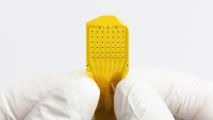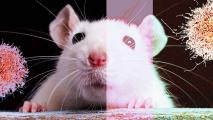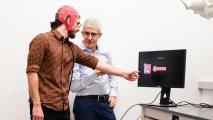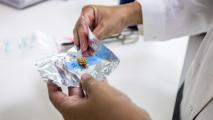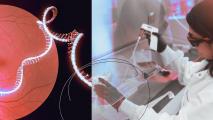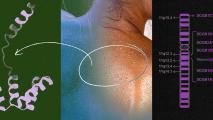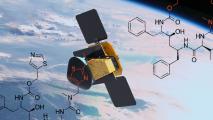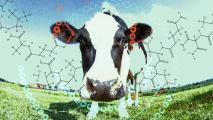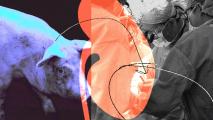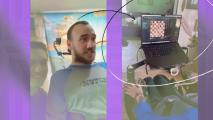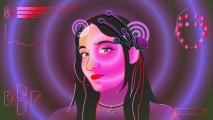
Biotech
Human history has been all but defined by death and disease, plague and pandemic. Advancements in 20th century medicine changed all of that. Now advancements in 21st century medicine promise to go even further. Could we bring about an end to disease? Reverse aging? Give hearing to the deaf and sight to the blind? The answer may be yes. And soon.
More
Old drug appears to halt progression of Parkinson’s motor symptoms
A GLP-1 agonist used to treat diabetes appeared to halt the progression of Parkinson’s symptoms in a phase 2 trial.
“Universal” BCI lets anyone play games with their minds
A specially trained “decoder” slashes the time it takes a brain-computer interface (BCI) to read a user’s mind.
Oxytocin’s effects aren’t just about love
At last, neuroscientists are learning how the hormone shapes social behaviors such as pair-bonding and parental care. It’s more complicated than they thought.
Scientists are deep-freezing corals to repopulate the ocean
Healthy corals could disappear by the 2030s if climate change is not curbed, so scientists are deep freezing specimens.
One-shot gene therapy reverses vision loss in small trial
A gene therapy for wet AMD — the most common cause of severe vision loss in seniors — is now in phase 3 trials.
Psychedelic drugs and the law: What’s next?
The push to legalize magic mushrooms, MDMA, LSD, and other hallucinogens is likely to heighten tensions between state and federal law.
How patients are using technology to kick-start a healthcare revolution
Susannah Fox, former chief technology officer for the HHS, explains how technology can empower a patient-led healthcare revolution.
How much stress is too much? A psychiatrist explains
Some stress is good for you, but toxic stress, on the other hand, wears down your stress response system in ways that have lasting effects.
A protein found in human sweat may protect against Lyme disease
Human sweat contains a protein that may protect against Lyme disease, according to a study from MIT and the University of Helsinki.
Pacemaker powered by light eliminates need for batteries and lets the heart to function more naturally
Scientists designed a pacemaker that transforms light into bioelectricity, or heart cell-generated electrical signals.
Generative AI tech is dreaming up new antibodies
A new tool for designing antibodies relies on the same kind of tech underpinning DALL-E and other image-generating AIs.
Pill to prevent Lyme disease kills ticks before they can infect you
A pill to prevent Lyme disease quickly killed ticks that bit treated volunteers, suggesting it could slow the spread of tick-borne diseases.
Drugs made in space “cooked real good,” says startup
Varda Space Industries has shared the results of its first mission to manufacture “space drugs” in Earth’s orbit.
Soaring insulin costs? Cows could help.
A genetically engineered cow that produce milk containing with human insulin could help cut the cost of the life-saving diabetes med.
First person to get a gene-edited pig kidney is “recovering well” so far
A gene-edited pig kidney has been successfully transplanted into a person for the first time, giving new hope to people with kidney failure.
First person with a Neuralink brain implant reveals how he uses it
Elon Musk’s Neuralink has revealed the identity of the first person to receive its brain implant — and the man says it has changed his life.
Autonomous auto racing promises safer driverless cars on the road
Autonomous racing is a testbed where competition spurs innovation and AI-controlled cars chart a course toward safer autonomous vehicles.
FDA approves weight-loss drug Wegovy to treat heart problems
The FDA has approved the use of Novo Nordisk’s popular weight-loss drug Wegovy to reduce the risk of certain major heart issues.
How frontotemporal dementia, the syndrome affecting Wendy Williams, changes the brain
In contrast to Alzheimer’s, in which the major initial symptom is memory loss, FTD typically involves changes in behavior.
How one streamer learned to play video games with only her mind
Perrikaryal uses an EEG to translate her brain activity into game commands, turning her mind into a video game controller.
Get inspired with the most innovative stories shaping the world around us.




